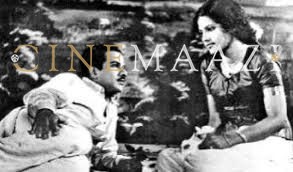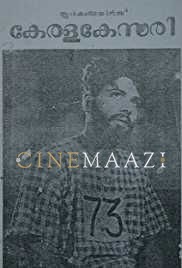This section is for paid subscribers only. Our subscription is only $3700/- for one full year.
You get unlimited access to all paid section and features on the website with this subscription.
Subscribe to read full article
This section is for paid subscribers only. Our subscription is only $37/- for one full year.
You get unlimited access to all paid section and features on the website with this subscription.
Not ready for a full subscription?
You can access this article for $2, and have it saved to your account for one year.
- Release Date29/03/1951
- FormatB-W
- LanguageMalayalam
Kurup is a cruel landlord who exploits his labourers and Gopi is a union leader organising workers against him. Kurup marries Radha, a conscientious woman who decides to leave him when she sees his cruelty. She breaks her mangalsutra, telling him that a wife is not a slave, and holds rights equal to her husband. Subsequently, she walks out of the house. A local woman, Devaki, is harassed by Kurup, and Gopi files a police complaint against him. When the police come to arrest him, Devaki saves him, an act of kindness that creates a transformation in the hard-hearted Kurup. Touched by her generosity, he accepts Devaki.
Navalokam was penned by Ponkunnam Varkey, one of the most radical writers from Kerala. It was one of the first films that spoke against exploitation in the name of religion and gender. Unsurprisingly, Navalokam ran up against problems with the Censor Board for its revolutionary dialogues and the depiction of the workers’ struggle. Several scenes were cut from the film. The song Gayaka, gayaka by P. Leela in the film is strongly reminiscent of Aayega aayega from the Hindi film Mahal (1949). Many other songs in the film also closely follow popular Hindi tunes of the time. Navalokam saw the emergence of one of the most renowned singers in the industry, Kozhikode Abdul Khader.
Navalokam (The New World) is written by one of the rebellious writers of Kerala, Ponkunnam Varkey whose writings questioned the feudal system, expressed anger against the exploitations of all kinds, including that of religion. It was one of the first films that spoke openly for women and against patriarchy.

Cast
Crew
-
BannerPopular Prod, Bombay
-
Director
-
Producer
-
Music Director
-
Dialogues
-
Cinematography
-
Editing
-
Writer









.jpg)



